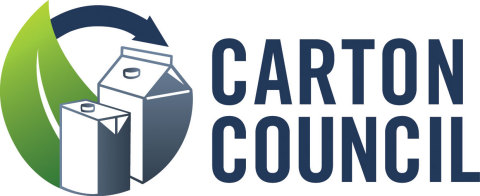The Least Expensive Way Consumers Can Help the Planet This Earth Day
The Least Expensive Way Consumers Can Help the Planet This Earth Day
DENTON, Texas--(BUSINESS WIRE)--As Earth Day approaches, it's important to remember that everyone can play a role in helping the climate. From individuals to companies and countries, we all have a responsibility to make a difference.
One of the simplest and least expensive ways to help the environment is through recycling. While most people recognize the importance of recycling, participation and recycling rates still can be improved.
According to a study by the Carton Council of North America, 95% of consumers think recycling is important and that everyone should do their part. To help consumers become more diligent recyclers, here are some tips based on the research:
- Make a Plan: Ensure that recycling is convenient for your household by having containers readily available in rooms where recyclable packages are consumed. Also, know your collection days and have enough storage to hold the recyclables until that collection day.
- Remind Yourself: Create reminders throughout your house, such as refrigerator magnets or handwritten notes, to prompt you about collection day or to help you stick to your recycling plan.
- Be a Leader: One person can inspire others to recycle. Use social media to brag about your recycling and tag your local community recycling program, homeowner’s association and even the Carton Council.
- Don't Judge a Book By Its Cover: Look to your community's website for what can and can't be recycled where you live. Acceptable items can vary depending on the program, and a little dirt or a misshapen recyclable should still go in your recycling container unless it’s covered in peanut butter or melted cheese.
- Feel Good About Your Efforts: Recognize that your recycling makes an impact. If no one recycled, there would be no recycled content to make new products. For example, 30 recycled food and beverage cartons are used to make a sustainable ceiling tile. A ton of paper made from recycled fibers conserves 7,000 gallons of water and 17-31 trees.
The Carton Council commissioned a study to better understand how people make decisions about recycling and what behavior changes could be made to improve recycling rates. By implementing these tips, consumers can make a difference in the environment and help create a sustainable future.
ABOUT THE CARTON COUNCIL
The Carton Council is composed of four leading carton manufacturers, Elopak, Pactiv Evergreen, SIG and Tetra Pak. Formed in 2009, the Carton Council works to deliver long-term collaborative solutions in order to divert valuable cartons from the landfill. Through a united effort, the Carton Council is committed to building a sustainable infrastructure for carton recycling nationwide and works toward their continual goal of adding access to carton recycling throughout the U.S.
ABOUT FOOD AND BEVERAGE CARTONS
Food and beverage cartons are highly recyclable materials that come in two kinds: refrigerated cartons that store, milk, juice, and egg substitutes; and shelf-stable cartons that are packaged for broths, milks, juices, soups and even wine. When sorted by themselves at materials recovery facilities (MRFs), cartons are a valuable material in high demand. Made mostly from paper, a renewable resource, cartons have become popular containers for food and beverage products as they are lightweight and compact, with a low carbon footprint. When recycled, they are used to make office and writing paper, tissues, paper towels, and even sustainable building and construction materials.
Contacts
Anthony Johnson
(628) 255-2810
